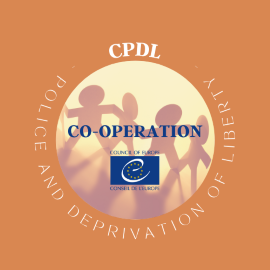A 2-day regional conference “Towards successful management, rehabilitation and post-penal assistance to violent extremist prisoners (VEPs) in the Western Balkans – achievements and the way forward” was successfully completed today in Tirana, Albania.
The conference gathered more than 70 prison and probation practitioners from the region, joined by local specialists and international experts, to look back at developments, take stock of achievements and openly discuss practices and challenges in the region with regards to VEPs rehabilitation and their preparation for release. Further-more, they highlighted the importance of having a structured and strategic approach in addressing this phenomenon, confirming that more work needs to be done in future in support to their full reintegration back into the society.
In his opening address, Klajd Karameta, Deputy Minister of Justice of Albania, highlighted that only good prison management with respect to prisoners’ human rights and dignity will help our societies in achieving successful rehabilitation of violent extremist offenders. Mr Alexis Hupin, Head of the Political Section of the EU Delegation in Albania, further emphasized that “challenges in rehabilitation of this category of prisoners require specialised skills in staff and sustainable resources in order to maintain long-term security and stability in the region”.
Denis Huber, Head of the Department on Police, Detention, Drugs and Addictions of the Council of Europe, stressed the importance for the Beneficiaries in the region to re-assess and optimise their approaches to VEPs management and ensure rehabilitation continuum once a person returns back to the society. “It is vital that rehabilitation process does not stop and is not in relapse after the person is released and that capacities of service providers, probation and social welfare systems, families and communities are enhanced to facilitate VEPs reintegration once released”, as Mr. Huber stated, adding that the European Union and the Council of Europe will continue to provide support to all 6 Western Balkans Beneficiaries in this field.
The practitioners recognised the multilayer benefits from meeting their peers from the region and colleagues from EU member States, becoming aware that they share many common issues and challenges in working with this category of prisoners. “There is disparity in material and human resources available in the Western Balkans Beneficiaries, which needs to be taken in account when tailoring approaches and strategies and devising intervention tools and programs for this category of prisoners and we hope the new regional action will continue to successfully guide us in how to overcome these practical challenges” – as Dragica Rajkovic, Head of Sector for treatment, Institute for Execution of Criminal Sanctions in Montenegro, pointed.
The conference marked the closing of the Action “Enhancing penitentiary capacities in addressing radicalisation in prisons in the Western Balkans Horizontal Facility for the Western Balkans and Turkey 2019 - 2022”, and under auspices of Horizontal Facility Programme, funded by EU and the Council of Europe and implemented by the Council of Europe.





